Second-Class Citizen Idiom: Meaning, Origin, Usage & Exercises
The idiom ‘second-class citizen’ means someone who is not given the same rights as other people. Learn its origin and usage in this blog; explore IELTS examples & exercises designed to help you use it appropriately for an 8+ band score in IELTS Speaking.
Table of Contents

Limited-Time Offer : Access a FREE 10-Day IELTS Study Plan!
In IELTS, sometimes you might come across topics related to discrimination in the speaking or writing task. In such cases, especially in IELTS Speaking Part 3 and Writing Task 2, you can use the idiom, second-class citizen, to express how a person’s rights and opportunities are treated as less important than those of other people in the same society.
In this blog, we will explore the meaning, origin, and usage of the idiom second-class citizen, and provide examples for IELTS Speaking and Writing. Remember, you can use mind maps to improve your IELTS vocabulary and etch such idioms and phrases in your memory.
Second-Class Citizen Idiom: Meaning
A second‑class citizen is someone who holds the legal or nominal status of a citizen, yet is denied the same rights, privileges, or respect as other citizens within the same society. It is used to describe structural inequality affecting civil, economic, or political rights.
Origin of Second-Class Citizen Idiom
Conceptually rooted in unequal class structures, ‘second‑class citizen’ traces back to periods of colonial rule, racial segregation, and institutionalized inequality. Historical examples include Jim Crow laws in the U.S., apartheid in South Africa, and discriminatory policies against women in certain societies.
The term was popularized through civil rights discourse to highlight de jure and de facto inequality.
Join our IELTS online classes and learn how to use impressive IELTS vocabulary for FREE!
Second-Class Citizen Idiom Usage
Listed below are a few examples of natural and context-rich sentences that demonstrate the use of the idiom 'second-class citizen':
- Despite being a full citizen, she often feels like a second‑class citizen due to legal obstacles to buying property.
- In that community, new immigrants are often treated as second‑class citizens even though they’ve lived there for decades.
- In many developing countries, the homeless are regarded as second-class citizens in society.
- He did not see why he should be treated like a second-class citizen for one day longer.
- In many countries, women are still considered second-class citizens.
Second-Class Citizen Idiom: Detailed Usage in IELTS Contexts
We can now thoroughly explore the effective application of the idiom, second-class citizen, across various IELTS contexts by utilizing sample answers that are specifically tailored to common topics.
IELTS Speaking Part 3
- Question: Do certain groups feel marginalized in your country?
- Answer: “Yes, many refugees, though legally recognized, feel like second‑class citizens because they are excluded from voting, face housing discrimination, and are often denied jobs, despite meeting residency requirements. This sense of exclusion makes integration into mainstream society difficult. Over time, it can even lead to social unrest or a lack of trust in government institutions.”
IELTS Writing Task 2
- Topic: Some people believe that social and economic inequality damages the unity of a society. To what extent do you agree or disagree?
- Answer Excerpt: Systematic marginalization often leads to individuals feeling like second‑class citizens, a phenomenon that severely undermines social cohesion. When a group lacks full participation in civic processes or equal access to opportunities, trust in societal structures invariably erodes.
Join a FREE online webinar to learn how to boost your IELTS vocabulary for success!
Second-Class Citizen Idiom: Practice Exercise
The following exercises will guide you on how to properly use the idiom 'second-class citizen' and show you how to apply it appropriately.
Exercise A: Choose the correct option.
1 Which of the following best reflects the meaning of "second-class citizen"?
A A person who chooses to live humbly despite being wealthy
B A legally recognized person who is denied equal rights or respect
C A foreign tourist unfamiliar with local customs
D A person with limited education but high income
2 Which situation best illustrates someone being treated like a second-class citizen?
A A citizen forgets to pay taxes and receives a penalty
B A student who fails an exam due to lack of preparation
C A person chooses to live in a rural area with fewer amenities
D A resident is denied housing and healthcare due to their ethnicity
3 Which word is most similar in meaning to the concept of a second-class citizen?
A Marginalized
B Privileged
C Educated
D Celebrated
4 Why is the term ‘second-class citizen’ often considered politically and socially powerful?
A It exaggerates an individual’s lifestyle choices
B It highlights personal failures in society
C It exposes systemic inequality and lack of inclusion
D It represents positive discrimination
5 In which IELTS Writing Task 2 topic would the idiom ‘second-class citizen’ be most appropriate?
A Advantages of online shopping
B The role of advertising in consumer behavior
C Challenges faced by minority communities in urban areas
D Importance of physical education in schools
Second-Class Citizen Idiom: Answer Keys for Practice Exercises
1 B
2 D
3 A
4 C
5 C
To conclude, the idiom ‘second-class citizen’ captures ingrained societal discrimination and injustice. It is highly relevant to IELTS subjects like community unity, government, social inclusion, and rights, and accurately using it shows depth of thinking, a wide vocabulary, and cultural sensitivity. So, use the idiom, second-class citizen, and similar other useful idioms for IELTS Speaking to score band 8.0+.
Useful Links:
- Done to a Turn Idiom: Meaning, Origin, Usage & Exercises
- Live and Breathe Something Idiom: Meaning, Origin, Usage & Exercises
- Keep/Have One’s Finger on the Pulse (of something) Idiom: Meaning, Origin, Usage & Exercises
- IELTS Speaking Lessons: Improve Fluency, Vocabulary & Band Score
- The Best Phrases to Use in IELTS Speaking
- Useful Resources & Websites for IELTS Vocabulary
Explore IELTS Resources

Start Preparing for IELTS: Get Your 10-Day Study Plan Today!
Check out other Idioms
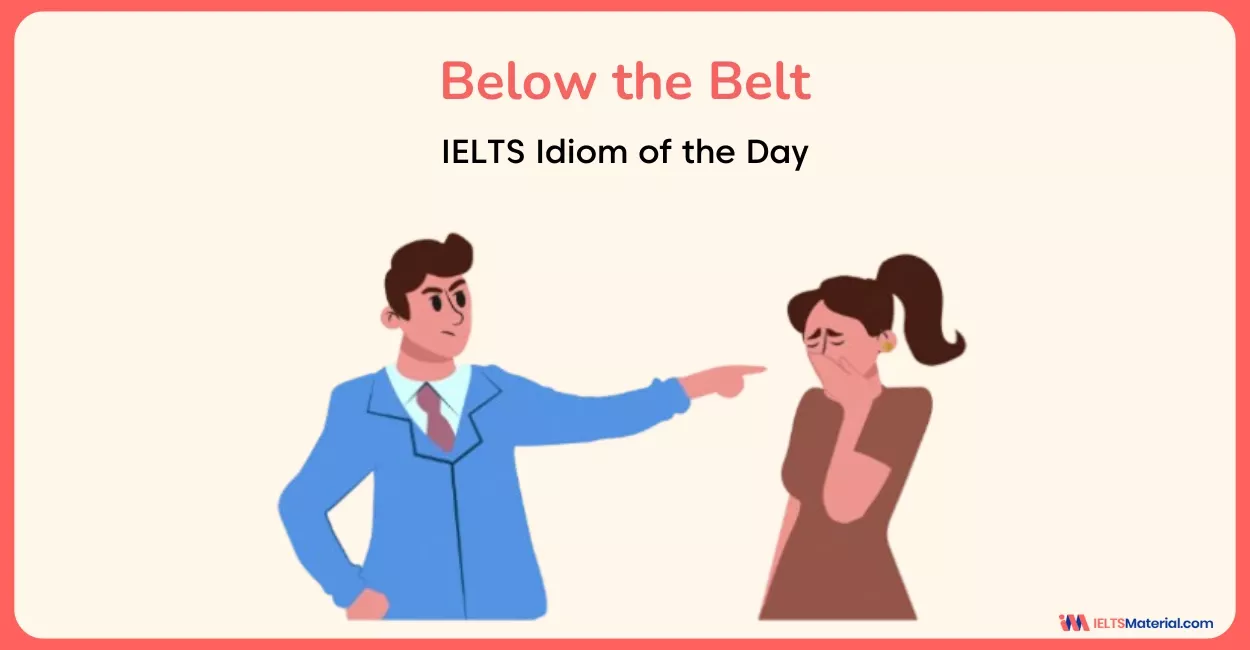
Haniya Yashfeen

Haniya Yashfeen
Recent Articles
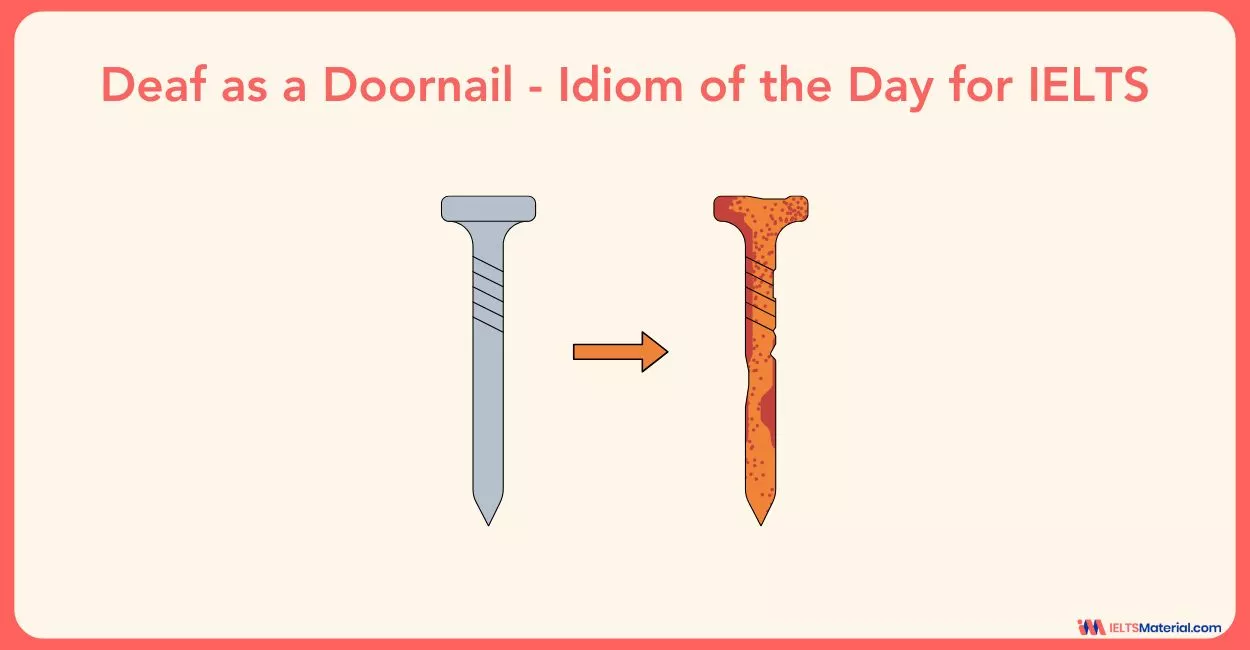
Kasturika Samanta

Prity Mallick

Nehasri Ravishenbagam
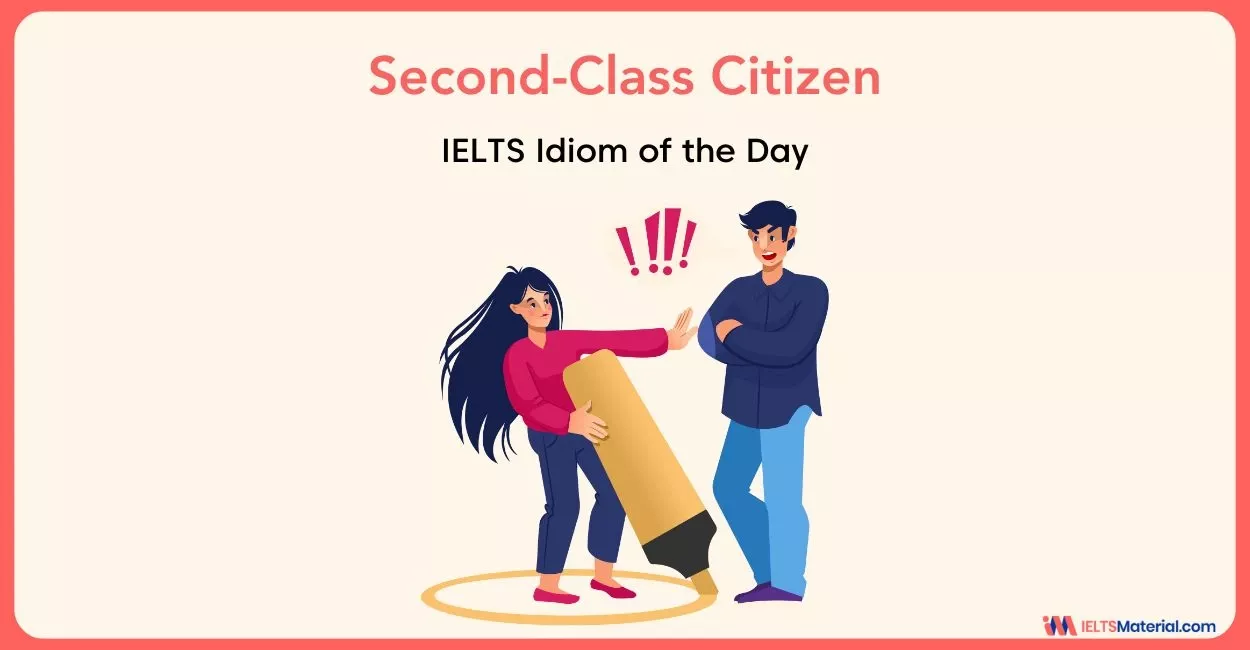

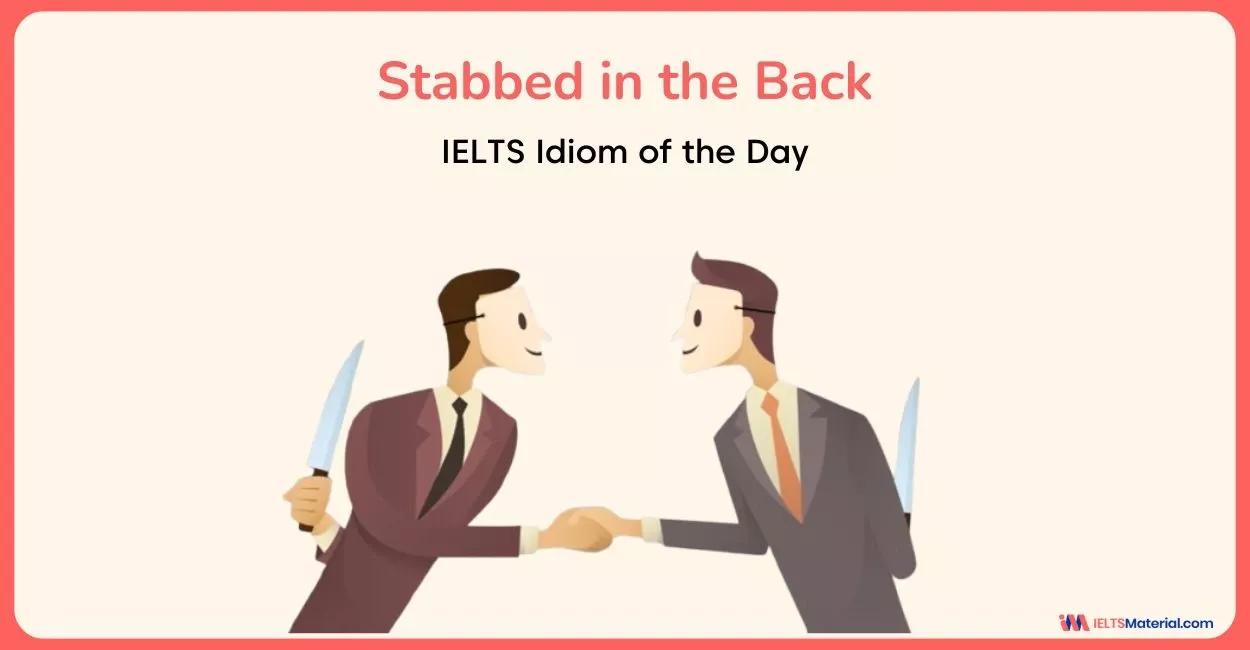

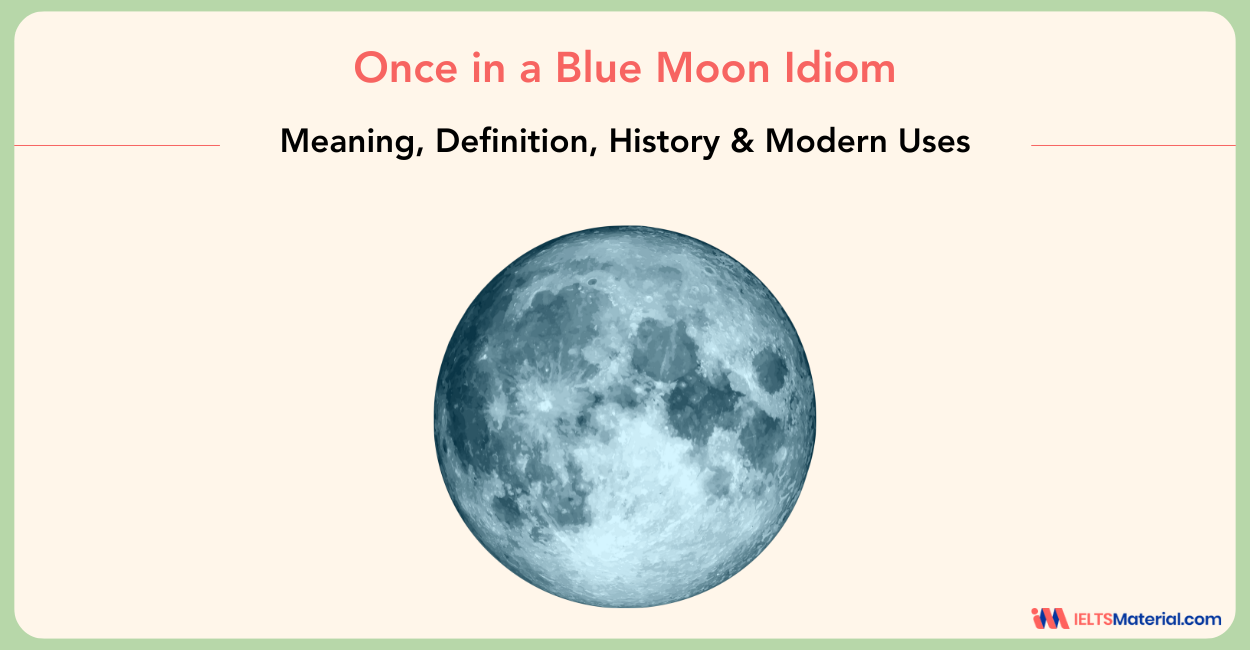


Post your Comments